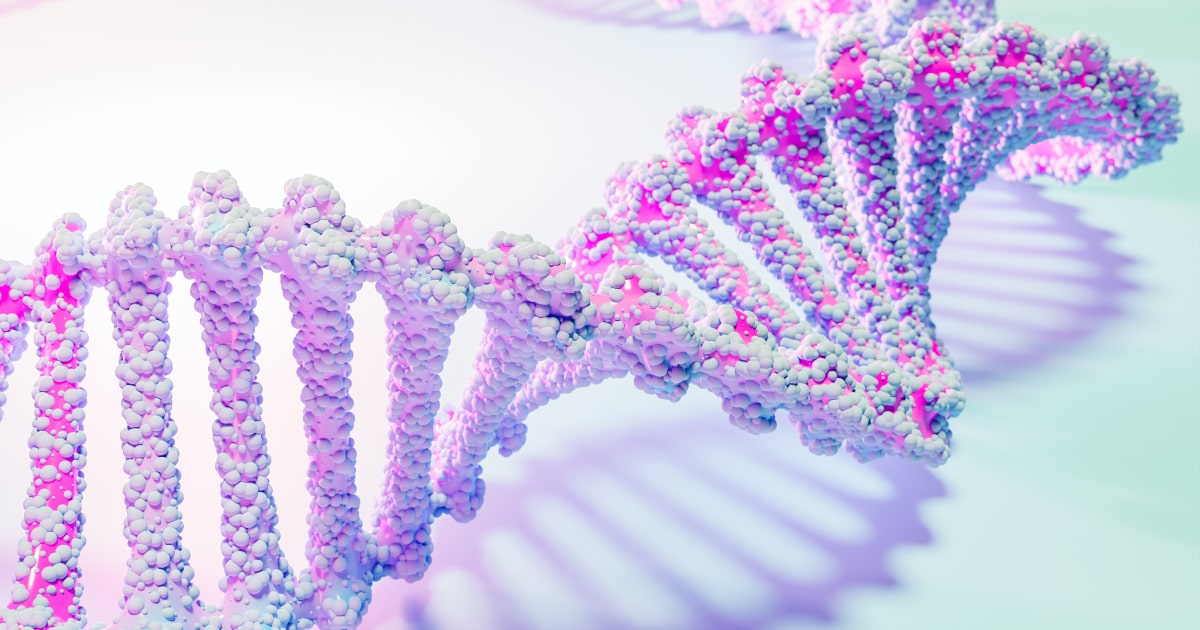
Expert Reviewed By: Dr. Brandon Colby MD
h1 { font-size: 2em; } h2 { font-size: 1.5em; } h3 { font-size: 1.17em; } p { font-size: 1em; }KCNQ3-related developmental disability is a rare genetic disorder that affects the nervous system, leading to a wide range of symptoms and challenges. Understanding, diagnosing, and using genetic testing for this disease can provide valuable information for patients and their families, as well as inform treatment and management strategies. This article will delve into the complexities of KCNQ3-related developmental disability, exploring its causes, symptoms, and the role of genetic testing in its diagnosis and management.
Understanding KCNQ3-related Developmental Disability
KCNQ3-related developmental disability is caused by mutations in the KCNQ3 gene, which is responsible for producing a protein that plays a critical role in the proper functioning of nerve cells. This protein, called Kv7.3, helps regulate the flow of potassium ions in and out of nerve cells, which is essential for the transmission of electrical signals between these cells. When the KCNQ3 gene is mutated, the resulting disruption in the function of Kv7.3 can lead to a wide range of neurological symptoms, including developmental delays, intellectual disabilities, and seizures.
The severity of KCNQ3-related developmental disability can vary greatly between individuals, even among those with the same mutation. Some people may have only mild symptoms, while others may experience significant challenges in their daily lives. This variability can make it difficult to diagnose and manage the condition, highlighting the importance of genetic testing in providing accurate and personalized information for patients and their families.
Diagnosing KCNQ3-related Developmental Disability
The diagnosis of KCNQ3-related developmental disability typically begins with a thorough evaluation of the individual's medical history, physical examination, and neurological assessment. This can help identify any signs or symptoms that may be indicative of the condition, as well as rule out other potential causes of the observed symptoms. However, given the variability in the presentation of KCNQ3-related developmental disability, a definitive diagnosis often requires genetic testing.
Genetic Testing for KCNQ3-related Developmental Disability
Genetic testing for KCNQ3-related developmental disability involves analyzing the individual's DNA to identify any mutations in the KCNQ3 gene. This can be done through several different methods, including whole exome sequencing, targeted gene sequencing, or chromosomal microarray analysis. Each of these techniques has its own advantages and limitations, and the choice of testing method may depend on factors such as the individual's clinical presentation, family history, and the availability of testing resources.
Identifying a mutation in the KCNQ3 gene can provide a definitive diagnosis of KCNQ3-related developmental disability, allowing for more accurate and personalized management of the condition. In some cases, genetic testing may also be useful for identifying other family members who may be at risk for the condition, enabling early intervention and monitoring for any potential symptoms.
Benefits of Genetic Testing for KCNQ3-related Developmental Disability
There are several potential benefits to obtaining a genetic diagnosis for KCNQ3-related developmental disability. First and foremost, a definitive diagnosis can provide patients and their families with valuable information about the cause of their symptoms, which can help inform treatment decisions and management strategies. In some cases, this information may also be useful for predicting the likely course of the condition, enabling patients and their families to better prepare for the future.
Additionally, genetic testing can help identify other family members who may be at risk for KCNQ3-related developmental disability, allowing for early intervention and monitoring. This can be particularly important for parents who are considering having additional children, as it can provide information about the potential risk of passing on the mutated KCNQ3 gene to future offspring.
Finally, a genetic diagnosis of KCNQ3-related developmental disability can help connect patients and their families with support groups, research studies, and other resources that are specifically tailored to their needs. This can be invaluable in helping individuals with KCNQ3-related developmental disability and their families navigate the challenges of living with a rare genetic disorder.
Conclusion
KCNQ3-related developmental disability is a complex and variable genetic disorder that can present significant challenges for those affected by it. Genetic testing plays a crucial role in the diagnosis and management of this condition, providing patients and their families with personalized information that can inform treatment decisions, enable early intervention, and connect them with valuable resources and support. As our understanding of KCNQ3-related developmental disability continues to grow, so too will our ability to effectively diagnose, manage, and support those living with this rare genetic disorder.
About The Expert Reviewer
Dr. Brandon Colby MD is a US physician specializing in the personalized prevention of disease through the use of genomic technologies. He’s an expert in genetic testing, genetic analysis, and precision medicine. Dr. Colby is also the Founder of and the author of Outsmart Your Genes.
Dr. Colby holds an MD from the Mount Sinai School of Medicine, an MBA from Stanford University’s Graduate School of Business, and a degree in Genetics with Honors from the University of Michigan. He is an Affiliate Specialist of the American College of Medical Genetics and Genomics (ACMG), an Associate of the American College of Preventive Medicine (ACPM), and a member of the National Society of Genetic Counselors (NSGC)